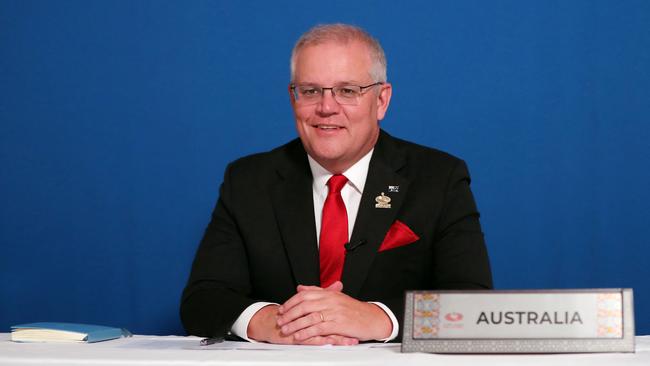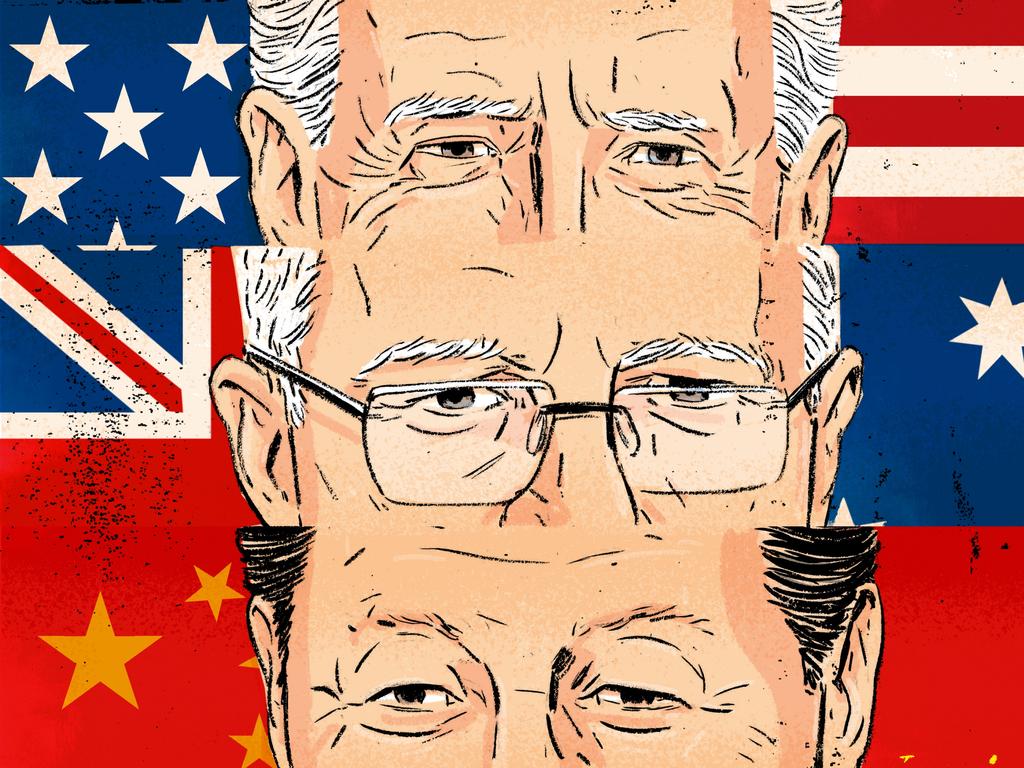
Voters are rewarding results and the Morrison government is reaping the dividends of the nation’s collective response to the pandemic.
But as the Prime Minister keeps reminding the colleagues, these are COVID numbers. And they may not last.
He has been at pains to point out during party room meetings throughout the year that the lofty approval ratings for the government, and his own leadership, needed to be taken with a grain of salt.
The pandemic has rewritten the traditional electoral model. People appear to be wanting to find reasons to support governments, rather than reasons not to. Daniel Andrews is testament to that.
The hallmark of the Morrison government during this crisis has been stability and competence.
When it comes to discipline Morrison has kept the tension in the cord.
The consistency and stability of the polls reflect the current political reality: that health fears and economic effects of the pandemic remain paramount and persistent in the community.
Drawing comparisons to Europe and the US, Australia has done remarkably well. The lesson for leaders is simple. Don’t cock it up.
The rest of it remains on the margins. For the moment.
The ongoing trade conflict with China and the risks that it poses, the release of the Brereton report into alleged war crimes have been high in the news cycle but have failed to shift the dial.
Anthony Albanese’s woes have also seemed to have escaped the attention of the electorate, and if they haven’t, no one seems to care.
For Morrison, however, there will always remain the risk that eventually someone will be tempted to go out and take the numbers for a spin and freelance on other policy issues in the misguided belief that excess political capital is there to be spent.
Let’s see what happens next year and if polling complacency begins to pollute the shallows.
If there is another genuine area of concern for the Coalition next year, it would, or at least should be the apparent disassembling of One Nation in Queensland.
While it may be true that under COVID, the minor parties have become largely irrelevant and their pet issues relegated to temporary obscurity, those that may have voted or supported them prior to the outbreak, don’t appear to want to stick to a traditional and simplistic model.
In last month’s Queensland election, the unions made a big play for Pauline Hanson One Nation (PHON) voters in regional Queensland. They succeeded. This went largely under the radar. But the numbers proved that in a disaggregation of the conservative minor party, fewer votes are now going back to the main conservative party — the LNP.
In fact, the larger flow back to Labor was substantial. It appears the same phenomenon played out at a federal level at the weekend in the by-election for the federal north Queensland seat of Groom.
In the absence of a PHON candidate, both the LNP and Labor shared the spoils. But it was Labor that benefited the most with a TPP swing on current numbers of around 5 per cent.
In a seat like that it matters little. But in some federal seats it may matter a lot.
As if to confirm this, the PHON vote in the most recent Newspoll showed its primary vote dip to a four-year low of 2 per cent. This was one point down on the last poll but several over the course of the year and well below the 3.1 per cent recorded as a national average at the May 2019 election.
It wasn’t the Coalition’s primary vote that jumped up by the corresponding point in this latest poll — as would have been expected before in the traditional churn of disaffected conservative votes. It was Labor’s.
The warnings signs are being erected in Queensland.








Scott Morrison now finds himself ending a horrible year in an unimaginably better electoral position than when he began it and the Coalition after seven years in government is the most internally stable it has been.